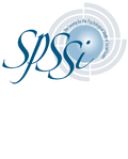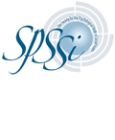Bias
Is Social Psychology Biased against Conservatives?
Most research psychologists are liberal. That doesn't mean their science is bad.
Posted November 10, 2014
By Alice Eagly, SPSSI President
A recent article in the New Yorker makes the case that most social psychologists identify as liberal and provides evidence that this liberalism might bias the field against conservatives. In fact, it cites the Society for the Study of Social Issues (SPSSI) as a particularly left-wing organization and points to a 1975 study that showed that SPSSI psychologists gave more favorable ratings to a paper that echoed rather than disagreed with their political orientation.
As it happens, I’ve been thinking a lot about what it means to be a politically involved social scientist in this age of growing polarization. As President Elect of SPSSI, my concern only grew last year, when a friendly staffer from the American Psychological Association assured me in casual conversation that SPSSI is populated by “lefties.” Well, I had thought that I had assumed a leadership role in an organization that fosters evidence-based policy making, not one that functions as an advocacy group for liberal causes.
These issues are not new. In 1967, then SPSSI president Thomas Pettigrew argued that the organization should serve as an honest broker that would offer social science knowledge to guide policy makers. The organization would act as a conduit between government and social science. Social scientists would work to inform relevant parts of the government about the expertise that its members could offer on policy issues and alert its members to governmental interests and needs for information.
In the intervening years, the honest broker concept has gained other advocates. In a 2007 book, The Honest Broker: Making Sense of Science in Policy and Politics, Roger Pielke, Jr., a political scientist and policy expert, contrasted politically engaged scientists’ honest broker role with their alternative role as issue advocates.
The issue advocate takes a definite stand and argues for a particular result by invoking supportive scientific findings. In contrast, the honest broker offers scientific information relevant to a range of policy options. Honest brokers work to expand policy makers’ thinking and do not advocate for a particular policy. Issue advocates do the opposite by working to narrow policy makers’ thinking to favor of a particular policy.
As Pielke argued, issue advocacy politicizes science. As advocates, scientists’ values are usually important (albeit not necessarily acknowledged), and they may deploy science in a biased manner by (knowingly or unknowingly) favoring findings that support their advocacy and ignoring counterevidence. Such scientists run the risk of being viewed as mere “hired guns” for ideologically driven public policy—rather like lobbyists. They also undermine their possibilities for serving as honest brokers.
Maintaining an honest broker stance is challenging in a politically polarized environment, especially if social psychology is populated mainly by political liberals. The affinity between social psychology and political liberalism stems from liberals’ attraction to a field that they believe produces knowledge that can facilitate social change. Following from the social movements of the last 50 years, adherents of increasing equality on the basis of gender, race and ethnicity, and sexual orientation have flocked to social psychology. Yet, in the context of an organization such as SPSSI that fosters scientific analysis of social problems, social psychologists can move beyond their own group interest and find the honest broker role.
To address the issue of the alleged leftist corruption of social psychology, I note that liberals’ preferences for progressive social change do not invariably yield biased science. Liberal, like conservative, psychological scientists are constrained by the shared rules of postpositivist science whereby research methods and findings are public, available for all to scrutinize and critique. When bias is present in research that attracts an audience, the bias is (sooner or later) exposed and then corrected.
Consistent with consensual scientific norms, scientists engage in collective practices such as mutual criticism, replication, and statistical hypothesis testing that foster the discovery and correction of error and bias and thus gradually improve the validity of scientific knowledge. Contrary to this understanding, critics such as Jonathon Haidt fall into the postmodernist trap of believing that social psychology mainly reflects the political attitudes of its researchers and theorists. They are wrong.
Alice Eagly is President of SPSSI and a professor of social psychology at Nortwestern University.




